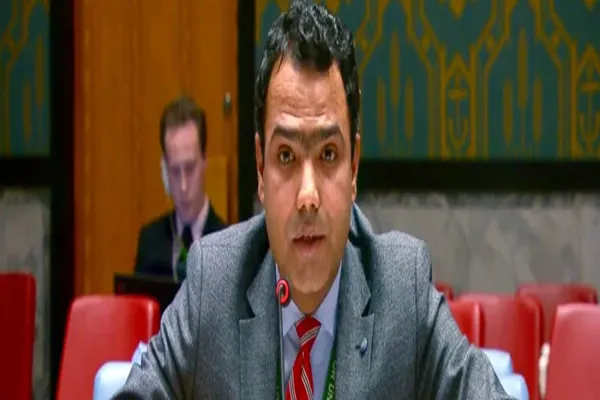i NEWS PAKISTAN
Pakistan is among the most vulnerable countries to climate change. Since the year 2000, climate change has been causing Pakistan a loss of $2 billion every year. According to a report by the International Monetary Fund on public investment in Pakistan, four million people are affected by climate change every year. It further said that the 2022 flash floods of Pakistan impacted 30 million people and killed 1,700 people. The report also said that 500 people are killed every year due to natural disasters and climate change.
The report expressed fears that by the year 2050, Pakistan's economy may be affected by natural disasters by up to 9%. The IMF has also raised concerns about the affordability of Pakistan's Public Sector Development Programme (PSDP), urging a reassessment of the initiative. The total cost to complete projects in the PSDP is reported to be Rs10.7 trillion, over 14 times the allocated budget of Rs727 billion for 2022-23. The IMF emphasized that the current annual PSDP budget and the addition of new projects would take approximately 14 years to complete existing approved projects.
“Notwithstanding intentions to prioritise the completion of ongoing projects, new projects with a total cost Rs. 2.3 trillion were added by government in the last budget. In addition, the separate preparation and oversight of the current budget and the development budget, by Finance Division the Planning Commission respectively, can lead to inconsistent and sub-optimal decision-making,” said the IMF in its latest report, titled 'Pakistan: Technical Assistance Report–Public Investment Management Assessment–PIMA and Climate PIMA'.
The Fund highlighted the need for reforms to establish a more credible basis for the PSDP budget, as ongoing projects continue to be added at a significant rate. The Planning Commission's funding priority for ongoing projects was also noted by the IMF, emphasizing the necessity for a realistic and sustainable approach. Additionally, the estimated years to completion may be understated, considering factors like unfunded projects, unaccounted flood-related projects, and significant delays leading to cost overruns. The IMF suggested a comparison of project costs with the realistic funding available in the medium term for better planning.
The report also pointed out the ineffectiveness of debt and deficit ceilings in containing expenditure, with consistent breaches over the years. Public debt has consistently exceeded the 60 percent ceiling since 2012. The lack of a medium-term planning document and the absence of projects in Vision 2025 were highlighted as challenges in influencing budget decisions effectively. The IMF recommended reviving five-year planning in Pakistan, considering the limited fiscal space and the need for growth drivers. A medium-term plan could address gaps in public investment management and incorporate changes in the national and global landscape since Vision 2025. The report emphasized the importance of climate-resilient infrastructure, given Pakistan's exposure to climate risks.
While acknowledging some improvements in public investment management through reforms, the IMF emphasized the incomplete implementation of measures outlined in the Public Financial Management Act 2019 and the 2021 Manual for Development Projects. The report called for strengthening institutions for public investment management to enhance the delivery of critical infrastructure services in Pakistan.
Credit: Independent News Pakistan (INP)









